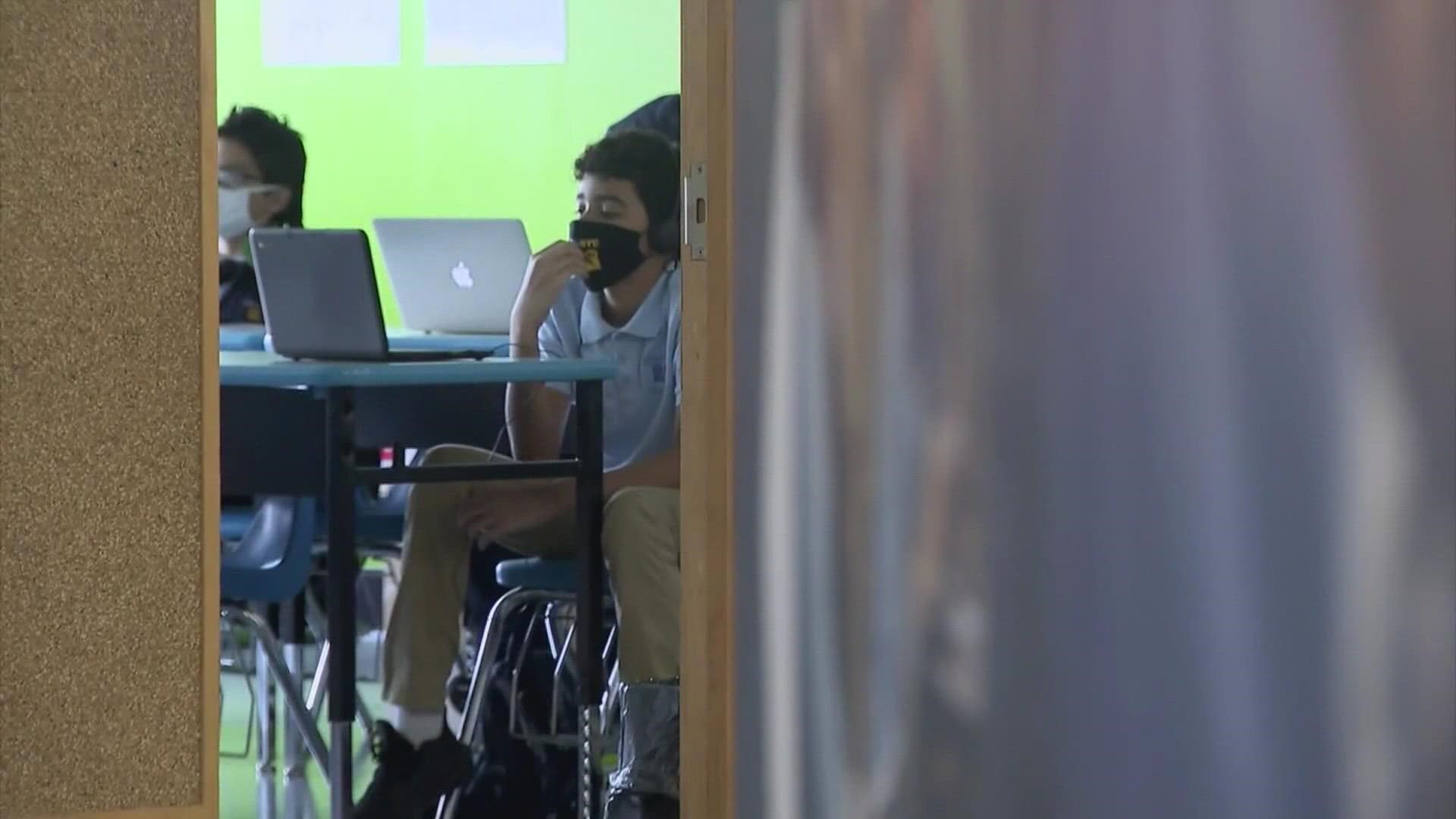EATONVILLE, Wash. — COVID-19 outbreaks in schools have led to hundreds of Washington students to quarantine and forced school closures in Pierce, Kittitas and, Grays Harbor counties.
Though parents should prepare for more closures this year, state Superintendent Chris Reykdal does not anticipate a complete shutdown of all schools.
"We have the strictest health protocols which is why we are not seeing what we saw in Florida, Texas, [and] Georgia when their schools cranked up," Reykdal said. "By the tens of thousands they were shutting down."
Students at Eatonville Middle School returned to in-person classes Monday after being sent home in September because of a COVID-19 outbreak. This closure and a few others had many Washington parents worried, especially those who received letter after letter, notifying them their child had close contact with someone who tested positive for COVID-19.
"There are folks who are worried. There are certainly some who have advocated that no kid should go back until everyone has access to the vaccine," Reykdal said. "The public health data doesn't back that up."
"Certainly there [are] going to be kids who are exposed, and there's a risk, but even today the hospitalization rate of young people is just fractional," he continued. "It is so small [when] we weigh that against the isolation, the anxiety, the academic impacts [and] the lack of engagement."
University of Washington pediatrics professor Dr. Beth Ebel said the issue of young children contracting COVID-19 is serious.
Ebel also works at Harborview Medical Center's Pediatrics Clinic where she has seen some children who were hospitalized because of the virus.
"We've also seen kids who have had some of those more serious complications. There can be heart problems that are left over, we've seen that in our clinic," Ebel said.
Ebel does, however, think bringing children back to school was the right move, especially now with a COVID-19 shot for younger people is on the horizon. In late September, officials announced that Pfizer had submitted its vaccine for FDA approval for kids ages 5 to 11.
"Generally, most parents have wanted this vaccine and they've seen it go well for their older kids," Ebel said. "I know so many parents are going to be relieved - delighted. The weight they've been carrying around, they are going to be able to put down."
Reykdal, whose own eligible children are vaccinated, is encouraging parents to do the same for their younger children if it's approved.
"That's going to help tremendously as well," Reykdal said. "It's the same vaccine at lower dosage, so the effectiveness of this has been shown absolutely globally, so I would not have a personal hesitation."
Both Reykdal and Ebel are encouraging anyone getting their COVID-19 shot to also get the flu vaccine because the flu season is expected to be worse this year.
"We feel that that co-administration is fine and protects you," Ebel said.
In the meantime, Reykdal said sending children back in person was the right thing to do.
"We are a cautious state medically, but we did push through for learning and I think it was the right balance," he said.

